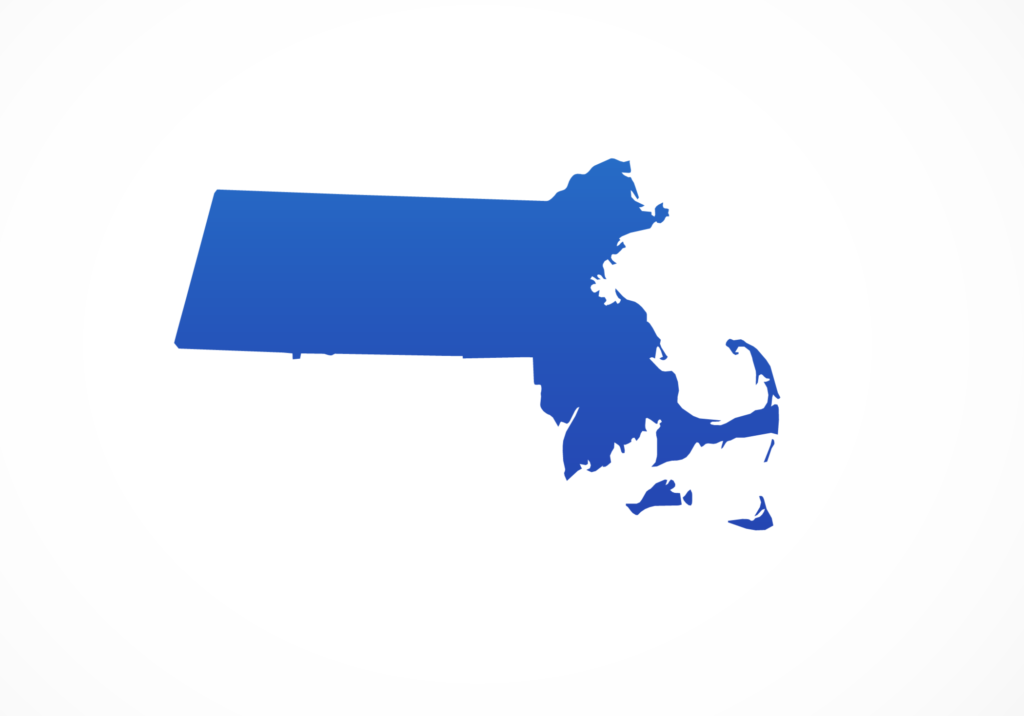
Massachusetts State Licensing Requirements
National Links
State-Specific CLIA Applications
Massachusetts Department of Public Health Authority. Clinical Laboratories.
https://www.mass.gov/clinical-laboratory-program
(1) Title 130. Division of Medical Assistance. Chapter 401. Independent Clinical Laboratory Services “An independent clinical laboratory must be enrolled in MassHealth on the date of service in order to be eligible for payment.
(A) In-state Providers. To be eligible to enroll as a MassHealth provider, an independent clinical laboratory must be
(1) located and doing business in the Commonwealth of Massachusetts;
(2) certified as an independent clinical laboratory by the Centers for Medicare & Medicaid (CMS), based on the criteria set forth in the Clinical Laboratory Improvement Amendments (CLIA) of 1988; and
(3) licensed as a clinical laboratory by the Massachusetts Department of Public Health.”
Clinical Laboratory License Application: https://www.mass.gov/how-to/apply-for-a-massachusetts-clinical- laboratory-license
The Massachusetts State Department of Public Health requires laboratories to possess a Clinical Laboratory License in addition to the CLIA Certificate of Waiver for performing CLIA-waived tests. The fee for a full license is $300 for each specialty area. The fee for a limited license is $300 per applicant. Form CMS116 and Laboratory Tests Performed On-Site List must be submitted in the application materials which should be sent to CLIALab@mass.gov.
(2) CMS issues 4 Types of Certificates based on the type of testing performed by the laboratory:
- Certificate of Waiver: this certificate is issued to a laboratory to perform only waived tests.
- Certificate for Provider-Performed Microscopy Procedures (PPMP): this certificate is issued to a laboratory in which a physician, midlevel practitioner or dentist performs no tests other than the microscopy procedures. This certificate permits the laboratory to also perform waived tests.
- Certificate of Compliance: this certificate is issued to a laboratory after an inspection that finds the laboratory to be in compliance with all applicable CLIA requirements.
- Certificate of Accreditation: this is a certificate that is issued to a laboratory on the basis of the laboratory’s accreditation by an accreditation organization approved by the Health Care Financing Administration (HCFA).
CMS may issue a Certificate of Registration to a laboratory to enable the entity to conduct moderate or high complexity laboratory testing or both until the entity is determined by survey to be in compliance with the CLIA regulations.
(3) Once DPH receives a complete CLIA application and Laboratory Test List, a fee remittance coupon will be issued that indicates the laboratory’s CLIA identification number, the certificate fee, and the compliance fee (if applicable). Please note that all fees should be submitted to CMS at the address indicated on the coupon.
CLIA fees are based on the certificate requested by the laboratory and, for moderate and high complexity laboratories, the annual volume and types of testing performed.
Online Access to CLIA Certificates
CMS is now making CLIA certificates available online at no cost via the QCOR Lookup Tool. All certificates generated after September 27, 2023 should be available for download. Click HERE to access the Tool and choose “CLIA Laboratory Lookup” from the left menu bar (2nd option from the top). When you click the entry for the laboratory, a box containing the laboratory information and a link to the certificate will pop up in a new window.


